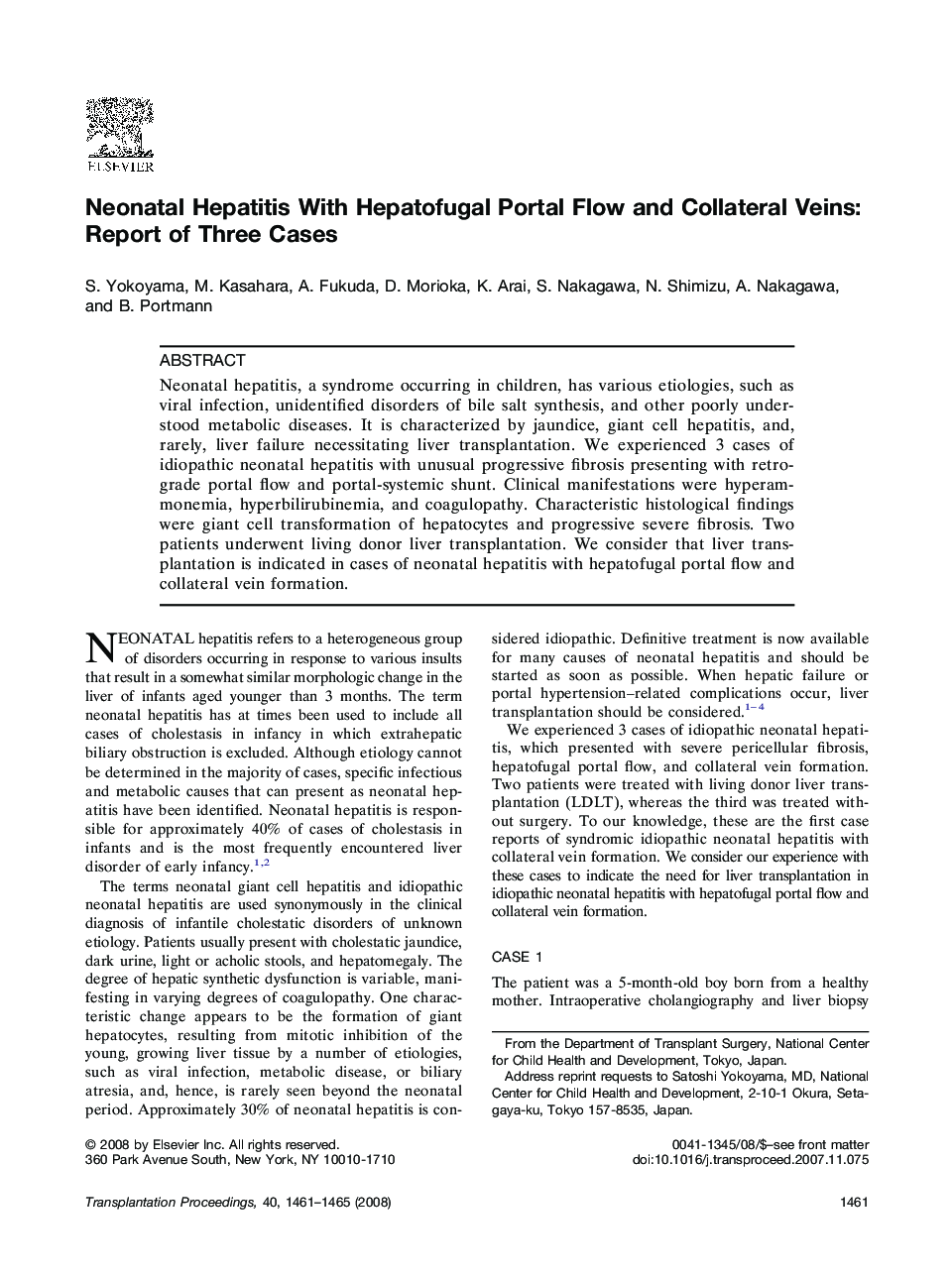| Article ID | Journal | Published Year | Pages | File Type |
|---|---|---|---|---|
| 4258240 | Transplantation Proceedings | 2008 | 5 Pages |
Neonatal hepatitis, a syndrome occurring in children, has various etiologies, such as viral infection, unidentified disorders of bile salt synthesis, and other poorly understood metabolic diseases. It is characterized by jaundice, giant cell hepatitis, and, rarely, liver failure necessitating liver transplantation. We experienced 3 cases of idiopathic neonatal hepatitis with unusual progressive fibrosis presenting with retrograde portal flow and portal-systemic shunt. Clinical manifestations were hyperammonemia, hyperbilirubinemia, and coagulopathy. Characteristic histological findings were giant cell transformation of hepatocytes and progressive severe fibrosis. Two patients underwent living donor liver transplantation. We consider that liver transplantation is indicated in cases of neonatal hepatitis with hepatofugal portal flow and collateral vein formation.
